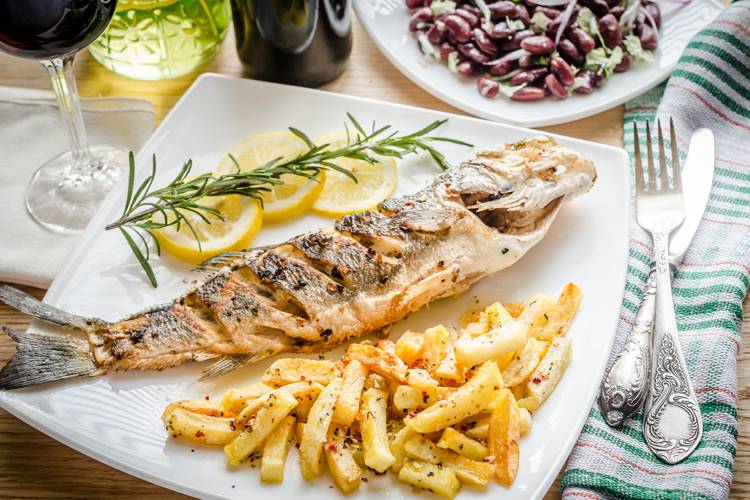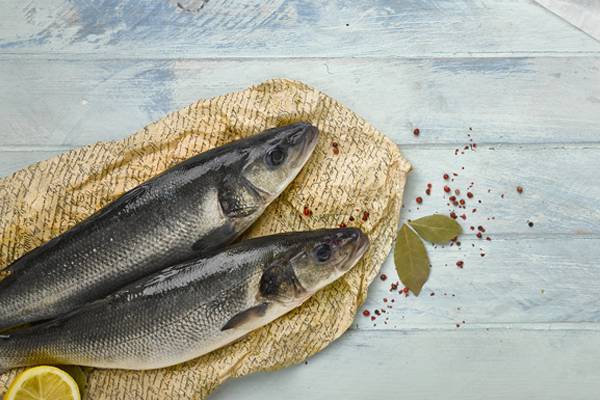Sea Bass: blue or white fish?
Is sea bass a blue or white fish? Discover with us the answer to this question, as well as the properties, nutritional values and recipes in which to include this excellent lean fish.
fresh food
Share

The name of the sea bass comes from the word 'wolf', due to its voracity and the speed with which it attacks its prey, although it is also known by other names depending on the autonomous community: lupin (Basque Country), robaliza (Galicia) and llobarro (Catalonia and Mediterranean coast). It is usually marketed fresh and whole. Due to the seasonality of the species, it is caught mainly in the colder months, but it can be found on the market all year round, thanks to being a potential species for aquaculture.
What kind of fish is sea bass?
If you are wondering if sea bass is a blue or white fish, you should know that it is a white or lean fish. This means that it is a fish with few calories and a milder flavor than the oily fish varieties.
Properties of sea bass
From a nutritional point of view, sea bass is one of the leanest white fish. It is considered a very nutritious food, suitable for low-calorie diets if it is cooked simply and low in sodium, due to its low content of this mineral. Are you interested in discovering the properties of this fish? Take note of them.
• It has few calories: a serving of 100 grams of white fish has between 70 and 90 calories. Its percentage of fat is minimal, which is why it is a very suitable fish in diets aimed at losing weight.
• Easy digestion: one of the main virtues of white fish is its easy digestion.
• Proteins of high biological value White fish contains high quality proteins, which provide essential amino acids that our body needs to function properly. A 100 gram serving of white fish contains 24g of protein.
• High content of group B vitamins: white fish provides vitamins, especially group B, which benefit the growth and development of red blood cells. Among the vitamins deserve special mention those of group B12 that contributes to proper functioning of the nervous system.
• High mineral content: its meat is an interesting contribution of minerals such as phosphorus and selenium; and moderate potassium, magnesium, iron and sodium.

Sea Bass Nutrition Facts
For every 100 grams of sea bass, we can find:
- Protein: 18g
- Fat: 1.3g
- Iron: 1.1mg
- Magnesium: 26mg
- Potassium: 255mg
- Phosphorus: 210 mg
- Zinc: 0.80mg
- B2 or riboflavin: 0.16 mg
Purchase and conservation advice
When buying it, we must take into account its state of freshness, observing its organoleptic characteristics:
• A firm consistency: scales adhered to the skin.
• White color and silver color under the belly, the more intense it is… The fresher our sea bass will be!
• Bright and not sunken eyes.
Once at home, it should be consumed within 24-48 hours and kept perfectly clean in the refrigerator, separated from the rest of the food to prevent it from transmitting the smell, although we can also freeze it whole or, in fillets, as long as it is fresh and clean.






